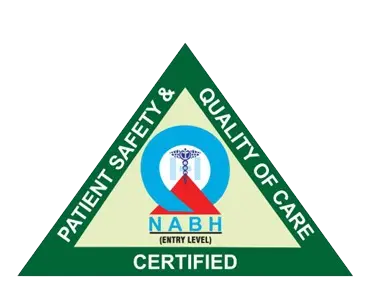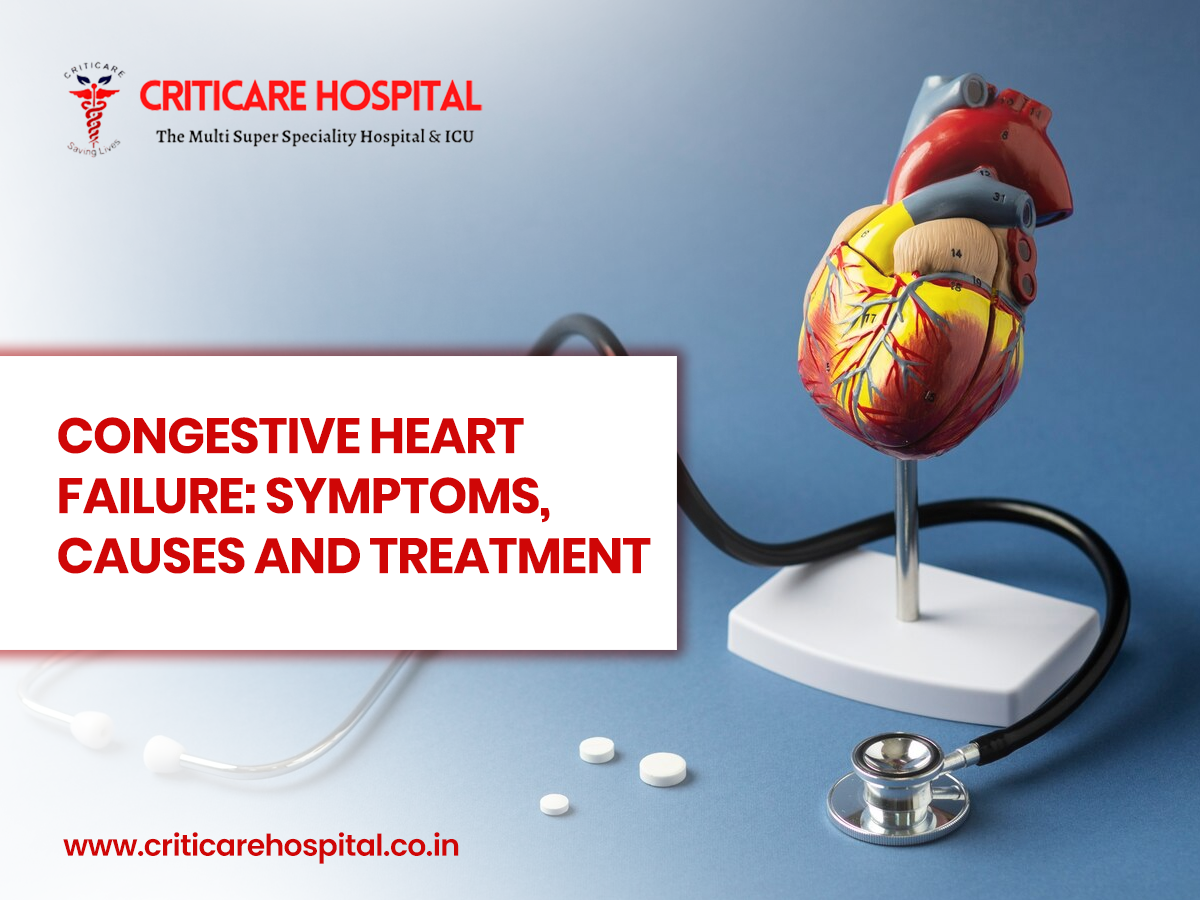Congestive Heart Failure is a condition during which your heart can’t pump blood well enough to give your body a normal supply. It is a long-term health condition that weakens your heart muscles. Medications and other treatments can help in managing the symptoms of congestive heart failure. Let’s understand what are the symptoms, causes, and treatments of congestive heart failure.
What is Congestive Heart Failure?
During Congestive heart failure, the heart muscle has become less able to contract over time or faces mechanical problems that limit its ability to fill with blood. During congestive heart failure, the heart doesn’t pump blood as efficiently as it should. The heart muscle has become less able to contract over time and does not provide oxygen-rich blood to other body organs. Types of congestive heart failure are left-sided heart failure, high-output heart failure, and right-sided heart failure. It is necessary to consult a cardiologist for a personalized treatment plan. You can take advice from the Best Cardiologists in Lucknow for better healthcare services and early treatment.
What are the Symptoms of Congestive Heart Failure?
There are several symptoms of congestive heart failure and some of them are chest pain, swelling in your ankles and abdomen, weight gain, heart palpitations, shortness of breath, dry cough, bloated or heard stomach, fatigue, and need to urinate while resting at night, loss of appetite, short of breath at night, and more.
While facing chest pain, severe weakness, irregular heartbeat, chest pain, fainting, severe shortness of breath, and irregular heartbeat you should visit a cardiologist immediately.
What are the Causes of Congestive Heart Failure?
The causes of Congestive Heart Failure are heart issues present at birth, diabetes, kidney disease, cardiomyopathy, coronary artery disease, high blood pressure, chemotherapy, body mass index of more than 30, arrhythmia, and others. Risk factors that are related to congestive heart failure include heart attack, family history of congestive heart failure, coronary artery disease, older than 65, and high blood pressure. Complications from congestive heart failure are sudden cardiac arrest, irregular heartbeat, kidney damage, liver damage, heart valve problems, pulmonary hypertension, and malnutrition.
There are also other causes of sudden heart failure including allergic reactions, severe infections, viruses that attack the heart muscle, and blood clots in the lungs.
What are the Tests to Diagnose Congestive Heart Failure?
To diagnose congestive heart failure you have to undergo some tests and these are blood tests, cardiac catheterization, Heart MRI, Echocardiogram, Genetic Testing, multi-gated acquisition scan, cardiac computed tomography, chest X-Ray, and other tests that help in identifying the condition of your heart.
What are the Treatments for Congestive Heart Failure?
There is no exact cure for congestive heart failure. Some treatments may give you relief from symptoms. The treatment plan depends on the stage and type of heart disease. The components of a treatment plan include lifestyle modifications like avoiding alcohol, caffeine, or soft drinks and eating the right diet. Vasodilators, diuretics, digitalis glycosides, beta-blockers, tranquillisers, ACE inhibitors, and medications can help in reducing symptoms. Surgical processes like heart transplants, heart surgery, ventricular assist devices, or other procedures are for treating congestive heart failure. For advanced healthcare facilities for this issue, you can visit the Best private hospital in Lucknow.
There are also a few side effects of these treatments such as kidney failure or hypotension. You can follow a few tips to decrease the risk of congestive heart failure. Maintain your weight, exercise regularly, stop drinking alcohol, and manage your stress and eating habits. Avoid eating processed foods and follow a balanced diet plan. Incorporate the right foods in your diet that are good for your heart.
Conclusion
Heart failure is one of the life-threatening conditions that have various symptoms such as dry cough, bloated or hard stomach, fatigue, chest pain, and others. To get relief from these symptoms you have to follow the right lifestyle choices. During congestive heart failure, the heart doesn’t pump blood as efficiently as it should. This condition can occur due to diabetes, kidney disease, cardiomyopathy, coronary artery disease, high blood pressure, chemotherapy, or maybe other causes. It is necessary to visit your cardiologist for a better treatment plan and medications. Your cardiologist will do some tests to analyze whether your symptoms are due to heart failure or something else. Some patients may need surgical treatment whereas a few patients can get relief from the symptoms of heart failure.




